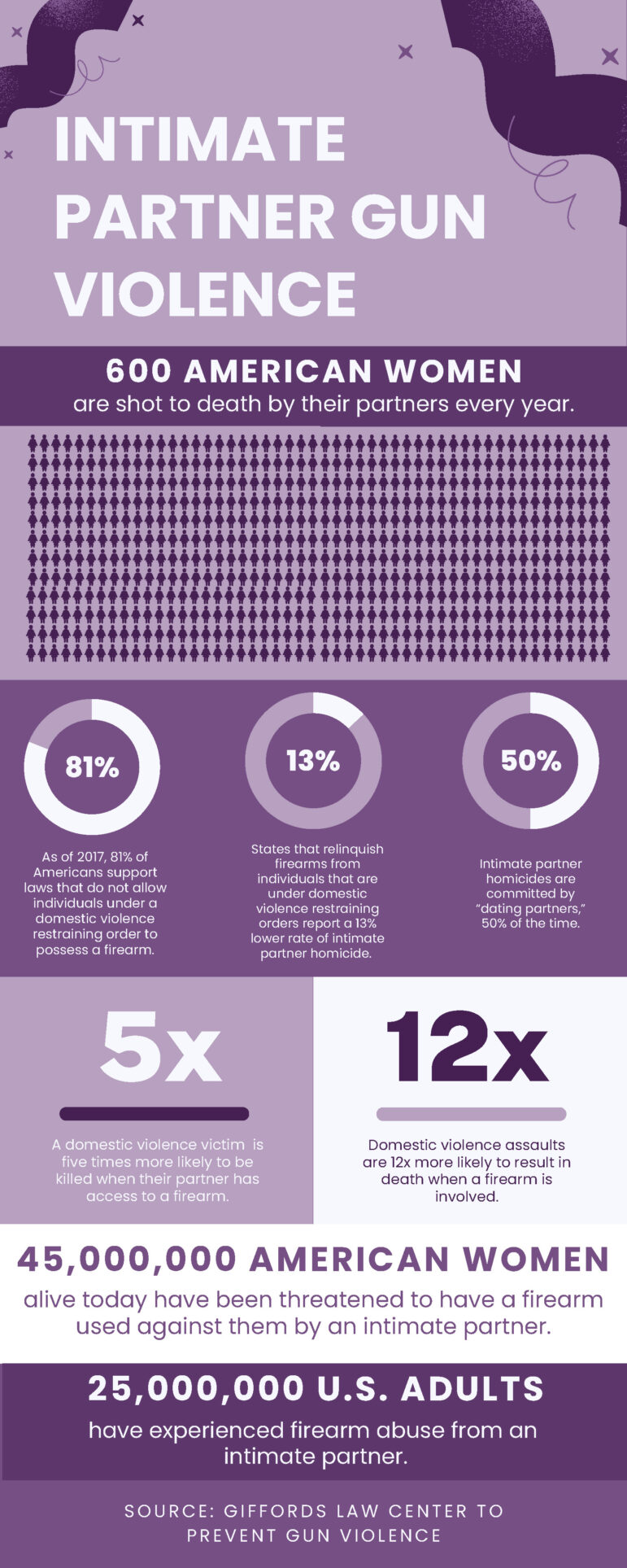LANSING, MI.—On June 21, the U.S. Supreme Court ruled 8-1 in United States v. Rahimi, upholding a federal law barring individuals under domestic violence restraining orders from possessing firearms. In Michigan, those under a domestic violence restraining order are unable to purchase firearms but are not always required to hand over the ones they already own. With the Supreme Court ruling, legal support for firearm removal from domestic violence perpetrators has gained precedent, which will allow little room for objections to Michigan’s new “red flag laws.”
In Michigan, the term “domestic relationship personal protection order”, or a PPO, is for restraining orders in cases of domestic violence. PPOs can be filed against a current spouse, a former spouse, an individual one shares a child with, an individual one is in a romantic relationship with or an individual someone has lived with or is currently living with. PPOs offer many protections, one of which prohibits abusers from purchasing firearms, according to the State of Michigan.
“This order returns some power to survivors to seek protection, some from these actions that are harmful, with the force of the state behind it,” said Heath Lowry, a public policy specialist and staff attorney for the Michigan Coalition to End Domestic and Sexual Violence. “It provides fees and fines and also possible imprisonment for a perpetrator that violates these orders. It gives some sense of peace.”
Michigan is one of 12 states to not include a form of firearm relinquishment in PPOs, according to the Giffords Law Center to Prevent Gun Violence. In February 2024, Michigan signed Extreme Risk Protection Orders (ERPOs) into law, also known as “red flag laws.” Under an ERPO, firearms are temporarily removed from the possession of an individual who has shown risk to themselves or others. ERPOs can be filed by domestic partners as well as law enforcement officers and healthcare workers, and aim to help those in abusive relationships, mental health crises, and other possibly dangerous situations. If an ERPO petition is upheld by a judge, the individual is not allowed to possess firearms for up to a year.
An individual can file both a PPO and an ERPO against the same person. While ERPOs offer more protections to victims, Lowry said this process can be harmful as “it’s two different legal proceedings,” and is one of the reasons a firearm relinquishment clause would further support and protect victims of domestic violence.
“It’s re-traumatizing for survivors to have to tell their story multiple times and explain themselves to different judges about why they need to be protected from this dangerous individual,” Lowry said.
Lieutenant Adrian Ojerio is the administrative lieutenant and a public information officer at the East Lansing Police Department. Ojerio said that PPOs help both victims and law enforcement, giving police “the legal right to take enforcement.”
“There’s a lot of resources and help out there for victims,” Ojerio said. “There’s a lot of outlets. There’s always a better way, and we’re here to help.”
Over 17,000 personal protective orders were issued throughout Michigan in 2023, according to data from the State Court Administrative Office. A majority of the individuals filing PPOs feared for their safety immediately and had their orders granted “ex parte,” meaning without a hearing by a judge because the individual filing the order was in significant and immediate danger.

“Supporting those victims and giving them an outlet to get away from a bad relationship so that they can continue on with a positive outcome is imperative to having a positive outcome in general,” Ojerio said.
There is no current legislation proposed regarding a firearm relinquishment clause in Michigan PPOs. Still, Lowry said current work groups are drafting the specific language and ensuring people would sponsor a proposed bill. Despite ERPOs becoming an option for domestic violence victims, Lowry and other advocates believe the facts regarding intimate partner homicide are reason enough to instate a firearm relinquishment clause.
When a partner has access to a gun, a domestic violence victim is five times more likely to be killed, according to the Giffords Law Center. States that require perpetrators to relinquish firearms under a domestic violence restraining order report a 13% lower rate of intimate partner homicide.
“The reductions in lethality for [people under] PPOs are almost directly tied to firearm relinquishment,” said Lowry. “It is a significant increase in the likelihood that someone doesn’t die from a domestic violence-related incident. If that firearm relinquishment was included, it would save lives.”
